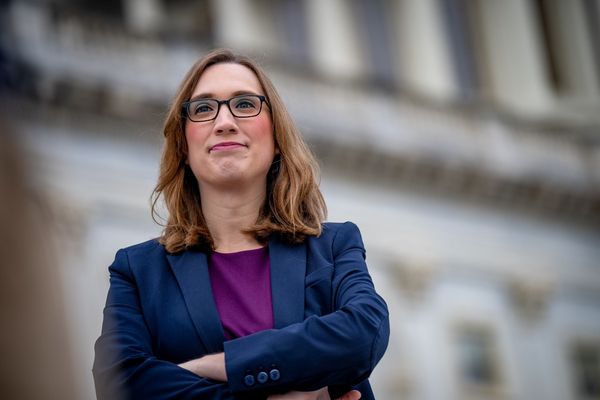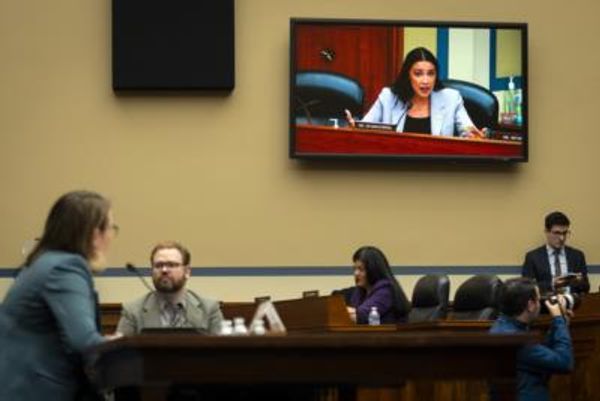With solo home ownership being pushed out of reach, will the cost-of-living crisis see a resurgence of what one economist has dubbed “Jane Austen marriages”, where property and wealth are just as important as true love?
When Alexandra was evicted from her one-bedroom apartment, she had two choices: move in with her boyfriend of barely one year (scary) or move into a share house (terrifying). Solo living was off the table: Sydney rental prices had skyrocketed post-pandemic to make it as impossible as solo home ownership.
“Luckily, Jack and I had already been talking about moving in together, but it was more of a ‘one day’ thing,” she says. “When the eviction notice came, I had to bite the bullet and say, ‘What if I moved in with you?’”
Jack agreed, and two years on the couple are still happily cohabiting. But Alexandra and Jack aren’t the only partners who’ve had to make a huge life decision based on their financial situation. Anecdotally, newish partners are rushing to live together to save on rent, groceries and utilities, putting pressure on relationships that should still be in their honeymoon phase. Some make it, but others break under the weight of moving too fast when they might have otherwise gone the distance had they, as Virginia Woolf put it, had a room of one’s own for a little longer.

The stats back this up. In 2023, research by fintech company Finder found that 15 per cent of recent renters had sped up plans to move in with their partner, with 10 per cent saying it was to make rent more affordable.
And it’s younger people who are more likely to make the jump, with 33 per cent of gen Z moving in together compared to 17 per cent of millennials. They’re facing an affordable-housing drought that’s made all the more difficult by increased competition among other renters and buyers, the controversial practice of rent bidding, and steep mortgage rates putting pressure on landlords to increase rent whenever they can. It means young people need to shack up not only to afford rent, but to also look more appealing on property applications.
““If the relationship goes south, it could be extremely complicated for individuals to part ways”
Sarah Megginson, from Finder
“It’s not surprising to see this rental crunch is prompting some people to turn to alternative living situations to cut down on expenses,” Finder’s money expert, Sarah Megginson, said when the findings were released. She added that it’s a precarious place for new love to exist in: a short-term solution isn’t always best for long-term love. “If the relationship goes south, it could be extremely complicated for individuals to part ways.”

But it’s not only couples taking huge leaps in their relationships. It’s affecting single people, too. As a woman in her thirties, I’ve watched many single friends fall like dominoes to the coupledom and, for the most part, I’ve not envied them. But one area of partnership that makes me increasingly and tragically bitter is being able to share costs. Rather than dreaming of a knight in shining armour, my fantasies are now bound in something more elusive for a woman of my circumstances: someone to co-sign a lease on an apartment with aircon and a spare bedroom. Better yet, finding the One who can co-sign a mortgage.
As the cost-of-living crisis continues, that ever-present gap between the coupled and uncoupled grows, giving way to what’s been dubbed “the single tax”: the financial penalty of not having a partner to share basic costs. A 2023 report by iSelect found Australian singles are $7691 worse off per year than their partnered pals. In a separate analysis, Compare the Market found that splitting the average cost of renting a unit in Australia would leave couples with more than $13,000 cash to spare, versus a single who had to bear this cost alone. In the United States, the net worth of married couples aged 25 to 34 was nearly nine times greater than singles of the same age, according to a 2019 Federal Reserve Bank survey reported by The Wall Street Journal.

British economist and professor Peter Kenway went so far as to tell The Guardian that we could see a return to a “Jane Austen-style marriage market, as millennials without an inheritance try to partner up with millennials who stand to inherit a house”.
It’s an interesting take. After all, marriage was originally an economic institution, and in the Regency-era in which Austen wrote it was seen as a solution to a woman’s financial difficulties. Her characters don’t marry for money alone, but not considering their partner’s wealth was deemed frivolous. “Find love, by all means,” she appears to be saying. “But you still need somewhere to live.”
We see it especially in Pride and Prejudice (published in 1813), in which each of the Bennet sisters seeks a wealthy saviour after their father’s estate is passed on to a male heir. Although Elizabeth Bennet famously won’t be swayed by money over feeling, she is ultimately rewarded with the affections of one of the wealthiest men in the landed gentry. (Mr Darcy earns £10,000 a year!) Meanwhile, her friend Charlotte marries Elizabeth’s cast-off, Mr Collins, for financial security so that she doesn’t become a burden to her family.
Catherine de Fontenay, a commissioner with Australia’s Productivity Commission, a body that provides research and advice to the government on economic, social and environmental issues, concedes that it’s not exactly a wild idea that we could make matches based on who can best help us weather this cost-of-living storm. “It’s not crazy to think that we could see a Jane Austen-type of world in which a person’s wealth is a factor in their decision about whether to partner up,” de Fontenay says. “It discourages me, but there are certainly people who take a person’s income into account when deciding whether to date. Along those lines, someone who owns a nice home could be perceived as more attractive.”

The idea has taken off on social media. In the 2005 film adaptation of Pride & Prejudice, Charlotte monologues: “I’m 27 years old. I’ve no money and no prospects. I’m already a burden to my parents. And I’m frightened.” It became a viral meme and the speech is regularly scrawled onto 27th birthday cakes. Then there’s Megan Boni (aka @girl_on_couch), who wrote the “song of the summer” about “looking for a man in finance” with a trust fund – the TikTok has had more than 58 million views.
But how is it playing out in the real world? Is an economic marriage really something people are looking for?
A Bumble spokesperson says that while the research doesn’t necessarily “indicate an overhaul where love comes second to security”, the data shows that “financial security is an incredibly important part of dating”. Bumble found that more than a third of single Australians are comfortable discussing finances in the early stages of dating, which was once taboo. It signifies a trend towards transparency, “where being open about financial matters is becoming as important as sharing interests and values”.
“Having a good job and money doesn’t outweigh an extremely boring personality”
Sydney single Ruby
Dating coach and Tinder’s local dating expert Sera Bozza reports similar. “With the cost-of-living crisis squeezing everyone’s wallets, it’s no surprise that money’s coming up in dating conversations. But [singles] aren’t on the hunt for a sugar daddy or a dowry, they’re much more interested in matching over authenticity.”
Ruby, a Sydney-based single, says that money is becoming increasingly important in her hunt for a match. “Unfortunately for me, I have discovered that, yes, financial stability is something I do take into consideration on dating apps. It’s just like height: seeing someone who works in a stable industry or is likely to have a high income is a stroke in their favour.” It’s a new consideration for Ruby, who never used to think about it. “It’s developed as I’ve gotten older and the economy has gotten worse,” she says. “That said, having a good job and money doesn’t outweigh an extremely boring personality. My Hinge is full of unreplied-to messages from guys in finance.”
Bozza agrees. “Of course, people still care about financial stability. We all want someone who’s got it together. But the data doesn’t show a sudden rush to marry for money just because inflation spiked. [Singles] know it’s the good vibes not the bank balance that keeps a relationship going. If Jane Austen was around today, her bio would say, ‘Swipe left unless you can split the bill and bring the banter.’”
This article originally appeared on Marie Claire Australia and is republished here with permission.







